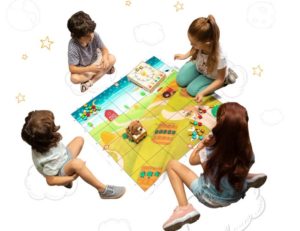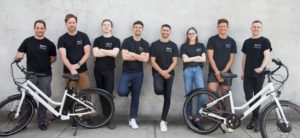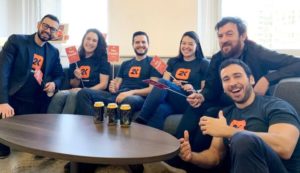Chicago-based Foxtrot has raised a $17 million growth round co-led by Imaginary and Wittington Ventures, with other investments from Fifth Wall and Lerer Hippeau.
Other previous investors include Revolution’s Rise of the Rest Seed Fund, M3 Ventures, The University of Chicago, Collaborative VC, and Wasson Enterprise, as well as new investors Bluestein Associates and Barshop Ventures.
Foxtrot Delivery Market is looking to put a new spin on the classic counter convenience store by offering craft beer, natural wines, and several of its own brands of sandwiches, meals, and coffee.
Founded in 2013, the startup offers customers the opportunity to buy in-store or order online for delivery, in a bid to reinvigorate what has mostly been an untapped area of delivery services.
The company works with more than 100 vendors to supply customers with upwards of 800 different products.
The workers inside the store who pick and pack and serve offline customers are W2 employees. Couriers are contractors but are employed directly by Foxtrot based on the company’s own best practices around on-demand delivery.
Foxtrot has stores in Dallas and in Chicago’s most popular neighborhoods like Southport, West Loop, Lincoln Park, River North, and Wicker Park, but there are plans to expand its footprint in these markets, as well as a launch in Washington, D.C.
In addition to their brands, they also offer an array of familiar food and beverage products like Oreo and Bud Light, as well as some everyday products like Bounty paper towels.
The company says it’s experiencing 2x year-over-year revenue growth, with 150 per cent year-on-year growth of its e-commerce customer base. Its revenue is split 50/50 between offline and online sales.
Founder and CEO Mike LaVitola said there is an even breakdown between Foxtrot’s own products (coffee, sandwiches, gummy candies), emerging brands (Hims, MatchaBar, etc.) and staple products and brands (Bud Light and Oreo).
LaVitola said maintaining a cohesive experience across retail and online is one of the greatest challenges.
“They’re fundamentally different,” said LaVitola. “The things that make one successful are very different from the things that make the other side successful. Going forward, to be as successful as we’ve been in these first markets, we need to make sure that the customer is coming to us online and in the store, and that they feel that they see the same brands and the same ecosystem”.

































